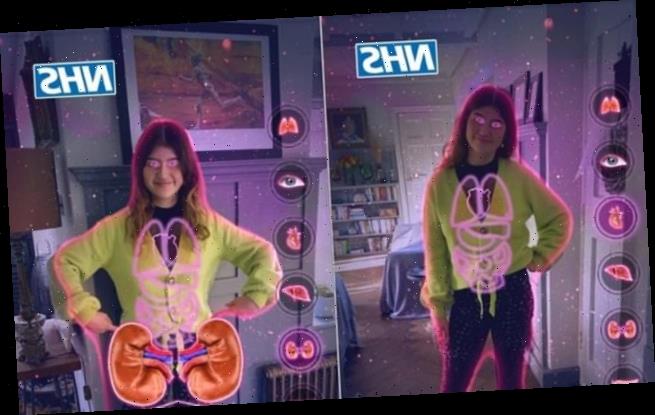“Boy meets girl” doesn’t exactly happen in stereotypical fashion in writer-director Steve Bailone’s “Long Weekend.” There’s no string-swelling orchestral accompaniment. Gone is a golden-hour glow haloing the protagonists’ first glances. And their meet-cute isn’t announced with an air of whimsical calamity. These star-crossed lovers’ worlds collide on an average day totally by chance in this metaphysical, melancholic tale that skillfully fuses time-travel movie constructs with familiar romantic comedy tropes. By tweaking each of those formulas slightly, the results are refreshing and inventive.
Bart (Finn Wittrock) has been going through a rough time. The compounding crises of his mother’s death and a tumultuous breakup have caused him to suffer a nervous breakdown. The fallout from the fracture with his ex-girlfriend forces him to move out of their idyllic Los Angeles apartment since he can’t afford the rent on his own. Memories of their time together haunt the place anyway, so his prospective transitional housing situation — staying in his cool married friends Doug (Damon Wayans, Jr.) and Rachel’s (Casey Wilson) converted garage — should prove a healthier respite. His humbling recovery process also includes him accepting a semi-humiliating gig at a medical supply company, writing up boring catalog items instead of exercising his creative writing talents.
It’s during this depressive time when Bart meets Vienna (Zoë Chao) at a neighborhood revival theater. After their initial hours spent together, walking around town, playing with sparklers in the park at sunset, drifting from one local craft bar to the next watering hole, he learns this gregarious, enigmatic stranger is traveling with some weighty baggage — and not just the physical kind. Red flags are raised when he realizes she’s staying in an inconspicuous motel, carrying wads of cash in her backpack, and doesn’t have any identification or a cell phone. He presses her for further details about her situation, but she casually steers the conversation elsewhere, or vaguely confesses half-truths. However, Vienna can only keep up the charade for so long before she finally divulges her big secret: She’s a time traveler. Trouble is she’s unexpectedly fallen in love with Bart, thus complicating her return.
The push-pull of the mystery isn’t so much Vienna’s reveal as it is the question of how the hopeless romantics will handle their impending split, or if they’ll even be torn apart at all. Bart questions his and her sanity multiple times, as do his friends, who only know of her existence because of him. It takes a “Ruby Sparks”-inspired approach to the conflict between the two, where he shoulders much of the pressure to keep her in his life. The layer of doubt about whether she’s lying, possibly bipolar or genuinely telling the truth is what provides the protagonists’ inner and outer stakes.
Wittrock and Chao’s chemistry is undeniable, floating the film on their endearing charm. They instill depth and dimension to these characters, getting us to care about their conundrums. Because of the buoyancy of their performances, the heart-clutching moments in the final act don’t feel belabored or excruciating, but rather earned and enlightened.
In addition to Bart’s wisecracking besties, tertiary characters like his overextended, overly friendly landlord (Wendi McLendon-Covey) and his dachshund-loving new boss (Jim Rash) add further levity. Though the narrative contains quirky underpinnings, it never veers into twee territory — a major feat given the setup that Bart is coping with a mental illness and Vienna is from 30-plus years in the future. In lesser hands, these plot devices could pose issues. Yet Basilone dexterously balances and maintains their delicate tonal qualities throughout.
Despite the film’s strengths, there are some weak spots. The story thread with Bart’s ex who keeps calling out of concern is forgotten about. It hits a few repetitious beats, specifically in the two scenes showcasing the pair bonding in post-coital bliss. Those serve to endear the couple to the audience, but they briefly weigh down the momentum by padding the story. One playfully sweet scene would’ve sufficed. While the archetypal roles in romantic comedies are portrayed fairly progressively, especially when it comes to who saves whom in the climax, and the characters continually, humorously reference “Back to the Future Part II,” their self-awareness only gets them so far. Bart and Vienna discuss the dreaded Manic Pixie Dream Girl trope, but the filmmaker himself isn’t pressed to dismantle or dissect it. He instead embraces it, albeit to a lesser degree than most films of this persuasion.
The soulful, comforting sentiments at the core of Basilone’s feature are really what ring true. The messages — that we should embrace the daily gifts happiness affords us and, more importantly, roll with the sad moments as those too could spiral into something just as magical and lovely — are resoundingly romantic notions retrofitted for this genre hybrid. The picture’s earnest optimism might stick around for a long time, or at least longer than expected.
Read More About:
Source: Read Full Article

